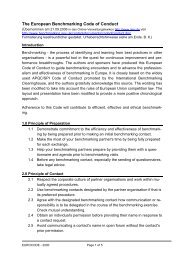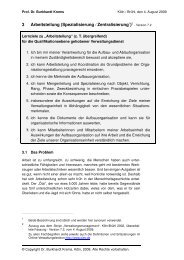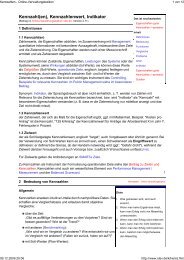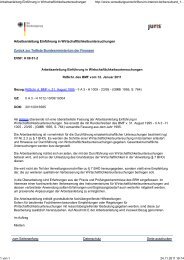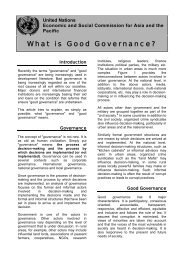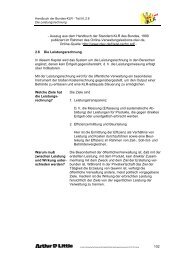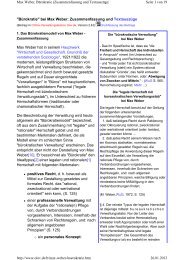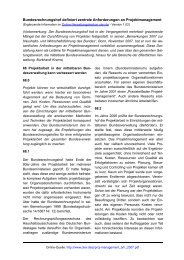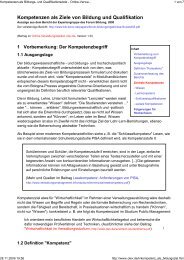Strategy Survival Guide
Strategy Survival Guide
Strategy Survival Guide
You also want an ePaper? Increase the reach of your titles
YUMPU automatically turns print PDFs into web optimized ePapers that Google loves.
<strong>Strategy</strong> <strong>Survival</strong> <strong>Guide</strong> Version 2.1<br />
Prime Minister’s <strong>Strategy</strong> Unit<br />
home | strategy development | strategy skills | site index<br />
<strong>Strategy</strong> Skills > Managing People and the Project<br />
Tools & Approaches<br />
People<br />
• Recruiting a team<br />
• Building a team<br />
• Working as a team<br />
• Encouraging creativity<br />
• Giving & receiving<br />
feedback<br />
The Project<br />
• Developing the plan<br />
• Structuring the work<br />
• Setting milestones<br />
• Managing risks<br />
• Defining accountability<br />
• Evaluating the project<br />
Managing People<br />
Difficult strategic issues require creative and fresh thinking. To<br />
maximise the contribution of all participants, including stakeholders,<br />
to this process, effective people management skills are required<br />
throughout the project.<br />
Particularly in the early phases of the project, attention needs to be<br />
given to recruiting a team of the right size, with the right skills and<br />
with the right team leader.<br />
Once recruited, it can take time to transition from a group of<br />
individuals into an effective team. An active approach to building a<br />
team may be necessary given the short time scales of many strategy<br />
projects.<br />
Working as a team also requires a clear articulation and common<br />
expectations of roles, responsibilities, modes of communication and<br />
decision-making, and an appreciation of different working styles<br />
within the team. Actively encouraging creativity is also an important<br />
way of maximising people’s contributions.<br />
Giving & receiving feedback is the iterative process by which the<br />
team optimise their performance. It should occur informally to<br />
enhance the day-to-day functioning of the team, as well as formally to<br />
provide appraisal points and aid long-term professional development.<br />
Managing the Project<br />
The overall co-ordination of the project to ensure the timely delivery of<br />
an acceptable and effective strategy requires excellent project<br />
management skills.<br />
At the outset of a project, it is helpful to document the proposed<br />
management approach in a project plan. Developing the plan aids<br />
explicit communication, and helps to ensure common expectations.<br />
The plan should be continually revised and updated as the project<br />
progresses.<br />
The team leader should determine the best way of structuring the<br />
work to get the most out of the team and address the issues in hand.<br />
Setting milestones for each work-stream as well as the overall<br />
project will help to keep it on track. Identifying and managing risks to<br />
the successful completion of the project is also key.<br />
The governance structure for the project should be agreed by<br />
defining accountability. It may be appropriate to establish a steering<br />
committee or advisory board to whom the project team can report.<br />
Evaluating the project before the team disbands it an important<br />
means of capturing what has been learned.<br />
<strong>Strategy</strong> <strong>Survival</strong> <strong>Guide</strong> – <strong>Strategy</strong> Skills<br />
Page 45



